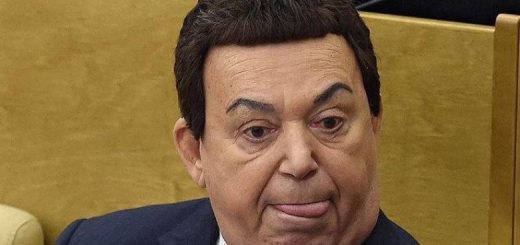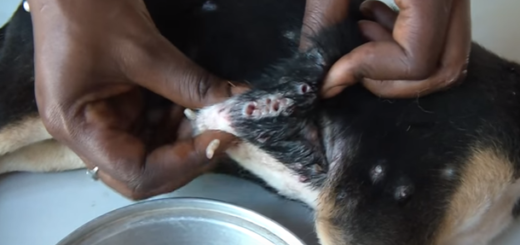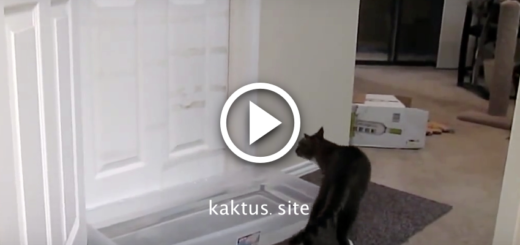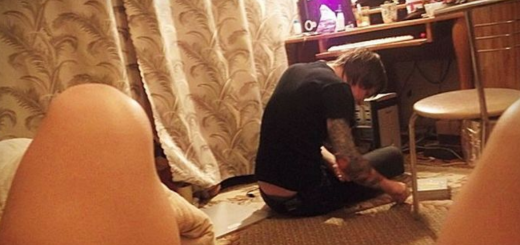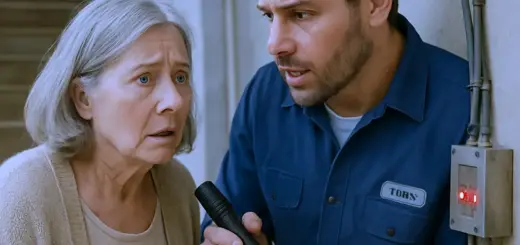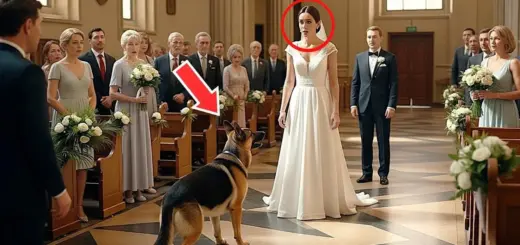Monday morning, I sat across from Sam Cohen, the same lawyer who’d handled our wills five years ago. The irony wasn’t lost on me.
— Mark, I have to tell you, this is one of the most calculated divorce strategies I’ve seen in thirty years of practice, Sam said, reviewing the documents I’d brought.
— Your wife has been building this case for a very long time.
— I nodded, watching him flip through photographs of the apartment, copies of the legal consultation notes, and printouts of Eleanor’s «evidence» against me.
— What are my options?
Sam leaned back in his leather chair.
— Well, the good news is that her strategy depends on you being unprepared and uninformed. The fact that you discovered this before she filed changes everything.
— He tapped the consultation summary.
— She was planning to paint you as emotionally unavailable. But we can counter that narrative.
— How?
— With facts. You’ve been the stable, supportive spouse for twenty-eight years. You supported her career. And more importantly, you have evidence of her systematic deception and adultery. That matters, even in a no-fault state.
Over the next two hours, Sam walked me through the reality. Texas is a community property state, and Eleanor’s adultery and deception could seriously impact the division of assets.
— There’s something else, I said, pulling out a folder I’d prepared over the weekend.
— I’ve been doing a financial analysis.
— Sam raised an eyebrow as I spread out spreadsheets and bank statements. This was where my accounting background became invaluable.
— Eleanor makes $200,000 a year as CEO, I explained.
— But our joint expenses have been running about $60,000 more than her salary for the past three years. I’ve been subsidizing her lifestyle without realizing it.
— Sam studied the numbers.
— How?
— My practice generates about $120,000 annually. I’ve been putting $80,000 into our joint account, keeping only $40,000 for my own needs. I thought I was being generous, allowing her to save more of her salary for our future.
— I pointed to a series of withdrawals from our savings account.
— But she’s been drawing down our joint savings to maintain the apartment with David.
— While I’d been living modestly, Eleanor had been using our joint resources to fund her separate life. The apartment rent, the dinners, the weekend trips… all of it had been paid for with money I’d earned.
— This is fraud, Sam said bluntly.
— She’s been using marital assets to fund an adulterous relationship while planning to divorce you. That’s going to significantly impact how a judge views the asset division.
But I wasn’t done. Over the weekend, I’d investigated my own wife’s business dealings.
— There’s more, I said.
— Eleanor’s been positioning David to take over more responsibilities at Meridian Technologies. But according to the corporate filings I found, she’s been doing it in ways that violate her fiduciary duty to the company’s board.
— Sam’s eyes sharpened.
— Explain.
— David was hired as VP of Business Development, but Eleanor’s been systematically transferring responsibilities to him that should require board approval. She’s been grooming him to replace her as CEO while positioning herself as President. But she’s never presented this reorganization to the board officially.
— I’d spent hours reviewing publicly available corporate documents, cross-referencing them with the business plan I’d found in their apartment.
— She’s been operating under the assumption that she can unilaterally restructure the company to benefit her relationship with David, I continued.
— But the board doesn’t know about their personal relationship, and they certainly don’t know about the corporate reorganization she’s been implementing without their approval.
Sam was taking notes rapidly.
— Mark, this isn’t just about your divorce anymore. If what you’re saying is accurate, Eleanor could be facing serious professional consequences.
— The thought gave me no pleasure. But I couldn’t ignore the reality.
— What do you recommend? I asked.
— We file first, Sam said without hesitation.
— We get ahead of her narrative and present the facts. More importantly, we make sure the board at Meridian Technologies understands what’s been happening under their noses.
That afternoon, I stopped protecting Eleanor from the consequences of her actions. I called Richard Shaw, the chairman of Meridian’s board.
— Mark, what can I do for you? Richard’s voice was warm, unsuspecting.
— Richard, I need to bring something to your attention regarding corporate governance issues at Meridian. It’s complicated, but I think the board needs to be aware of some structural changes that may not have been properly authorized.
— There was a pause.
— What kind of structural changes?
— I spent the next 20 minutes carefully outlining what I’d discovered, sticking to facts. Richard listened without interruption.
— Jesus, Mark, are you saying Eleanor’s been implementing major corporate changes without board approval?
— I’m saying that based on the documents I’ve seen, there appears to be a significant disconnect between what’s been happening operationally and what’s been reported to the board.
— And you’re bringing this to me because?
— I took a deep breath.
— Because I believe in corporate integrity. And because the board has a right to know what’s being done in their name.
That evening, Eleanor came home later than usual. Her face was tight with stress, her usual composed demeanor cracked.
— We need to talk, she said, setting her briefcase down with more force than necessary.
— About what?
— About the call Richard Shaw made to me this afternoon. About the corporate governance review the board has suddenly decided to conduct.
— Her eyes were hard, calculating.
— About the fact that my own husband is apparently trying to destroy my career.
I met her gaze steadily.
— I shared factual information about corporate reorganization that appeared to lack proper authorization. Nothing more.
— Don’t play innocent with me, Mark. You knew exactly what you were doing.
— Yes, I did. The same way you knew exactly what you were doing when you spent two years planning my replacement.
— This is different! This affects my professional reputation!
— Your affair with David affects that, too. The board’s going to find out eventually that you’ve been restructuring the company to benefit your personal relationship. I just gave them a head start.
She stared at me, and I could see her reassessing everything she thought she knew about me. The passive, supportive husband was gone. In his place was someone who understood the value of information.
— What do you want? she asked finally.
— I want you to stop treating me like I’m stupid, I said.
— I want you to acknowledge that your actions have consequences. And I want you to understand that I’m not going to quietly disappear just because it would be convenient for your new life plan.
Eleanor sat down, her posture defensive.
— The board review will pass. There’s nothing illegal about operational restructuring.
— Maybe not illegal. But unauthorized restructuring that benefits your romantic partner? That’s going to be harder to explain.
— I could see her working through the implications. For the first time since I’d discovered her betrayal, Eleanor looked genuinely worried.
— What’s it going to take to make this go away? she asked.
— It’s not going away, Eleanor. You set this in motion when you decided to live a double life. Now we all have to deal with the consequences.
— You’re destroying everything I’ve worked for!
— I shook my head.
— You destroyed it yourself. I’m just refusing to help you cover it up anymore.
That night, as Eleanor made stressed phone calls behind closed doors, I realized something fundamental had shifted. For 28 years, I’d been the one adapting. Now, for the first time, she was the one having to adapt to consequences she couldn’t control.
It wasn’t revenge. It was something quieter but more powerful: the simple refusal to continue enabling someone who’d been systematically betraying me.
Eleanor had built her new life on the assumption that I would remain passive, predictable, manageable. She was about to discover how wrong that assumption had been.
The next morning, I filed for divorce.
Six months later, I stood in the kitchen of my new apartment making coffee for one, and finding genuine peace in the simplicity of it. The morning sun streamed through windows I’d chosen, in a space that was entirely mine.
The divorce had been finalized three weeks ago.
Despite Eleanor’s initial threats, the evidence I’d gathered had shifted the entire dynamic. When faced with documented proof of her adultery, financial deception, and professional misconduct, her lawyer had advised her to accept a more equitable division of assets.
I kept the house in Sugar Land—the one we’d shared, but which I’d largely paid for. Eleanor kept her retirement accounts and half of our savings, minus the amount she’d spent on maintaining her secret life with David. It was fair.
But the real satisfaction came from watching Eleanor face the consequences.
The corporate governance review at Meridian Technologies had been thorough and devastating. While the board hadn’t found anything criminally actionable, they’d discovered a pattern of unauthorized decision-making and undisclosed conflicts of interest.
David Sterling had been terminated immediately. His position had been contingent on his professional judgment, and his romantic involvement with the CEO was an irreconcilable conflict of interest.
Eleanor had managed to keep her job, but barely. She’d been placed on probation, her decision-making authority had been significantly restricted, and she was required to report to an appointed Chief Operating Officer who supervised her every move. The woman who’d built her identity around professional power was now working under closer oversight than she’d experienced in twenty years.
Their apartment at CityCentre had been given up. David had moved back to Denver, taking a position with a smaller firm. Eleanor had moved into a modest one-bedroom place closer to her office.
I learned about these developments not through direct contact, but through mutual friends who had reached out to me after the divorce, expressing surprise.
— I had no idea, Sarah Martinez, one of Eleanor’s former colleagues, told me at the grocery store.
— She made it sound like you’d grown apart gradually, like it was mutual. Nobody knew about David.
— These conversations had been validating. For months, I’d been questioning my own perceptions, wondering if I’d really been as inadequate a husband as Eleanor had claimed.
But the most profound change was in my own relationship with myself. For the first time in decades, I was living without the constant undercurrent of someone else’s dissatisfaction. I hadn’t realized how much energy I’d been spending trying to anticipate Eleanor’s needs.






















